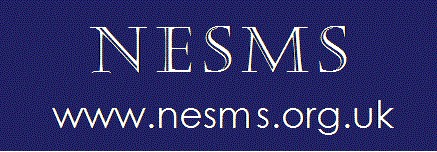click here

Aberdeen Salvation Army Citadel
| To see other reviews of NESMS Concerts click here |
 |
| Musicians from The North East of Scotland Music School |
| Joseph Long, Piano |
| Sibelius, Bartók and John Ireland |
|
Lunchbreak Concert Aberdeen Salvation Army Citadel |
| Thursday 27 April 2017 |
| Reviewed by Alan Cooper |
| A popular contributor to the Lunchbreak Concert Series over many years, Joseph Long once again drew a capacity audience to Aberdeen Citadel for his latest piano recital. He had chosen a number of lesser-known piano works by three well-known composers, Sibelius, Bartók and John Ireland. These pieces proved to be delicious salon-like works, almost as though the composers had produced them for an audience of musical intimates. Before the concert, Joseph, as he frequently does, gave us an illustrated talk regarding the background of the pieces. They were mostly composed around the time of the First World War, in the case of Bartók (1916), just before with Sibelius (1912), or with John Ireland, just after, in the 1920s. His illustrations directed us towards features to look out for, motifs, harmonies and indeed tempi. Joseph talked about how Bartók became more and more punctilious about metronome markings and even timings for the pieces and went on to say that a performer needs to approach these with a degree of personal freedom – after all some of Bartók's metronome markings do not fit in with his suggested timings. He did however tell us that Bartók's recorded performances are well worth hearing. |
| Joseph's short excerpts from the pieces he was going to play were thoroughly alluring. Our appetites were well whetted and I was certainly not disappointed in any of the music. Joseph did say not to look out for any great pianistic fireworks in these pieces, but the Bartók in particular did have its moments. Most importantly however, this recital was a perfect demonstration of how more simply constructed music in the hands of a real artist of the piano like Joseph Long can deliver an astonishing level of colour and depth of feeling. |
| Joseph opened his recital with the Sonatina Op. 67 no.3 in b flat minor by Sibelius. In his pre-concert talk Joseph referred to the darkness and austerity of the music. This came through in the motif that runs through the entire work as Joseph demonstrated and in the dark colour of the harmonies in the opening moments. Joseph played the opening movement with a clarity which matched its simplicity but there was considerable sensuality in his touch and his careful use of pedalling too. The second movement was delivered with considerable brightness. Joseph was perfectly at one with the music and in perfect foot and fingertip control of the piano itself. |
| Rhythm was very much to the fore in the first three sections of Bartók's Suite Op. 14. In Joseph's performance the opening Allegretto had a marvellous playfulness about it. The concluding note suggested Bartók in almost teasing mood. I always like to sit where I can watch the pianist's hands in a piano recital and in so doing I was able to see how Bartók had shaped the music of the Scherzo with the positioning and movements of the pianist's hands. It was almost as if he had choreographed the pianists hand movements. Joseph's performance was nothing less than balletic over the keys. |
| The third movement was as Joseph said, "impetuous, dark and menacing". Was this the composer's response to the War and was the finale marked Sostenuto his emotional response to it? Joseph's playing in this movement was carefully pensive and beautifully well thought out. This was a great performance of a marvellous piece. |
| "Warmth, lyricism, mellow and lush" were some of the words Joseph used to describe the three pieces by John Ireland which he was about to play – and of course he was right. The Holy Boy initially conceived as a Christmas piece was absolutely delightful – the perfect example of how a truly talented performer can make a simple piece of music stand alongside the very best music. |
| The gently nuanced touch of Joseph's playing made Summer Evening glow with happy sunset warmth and April had a special freshness delivered by Joseph's freedom and lightness of right-hand touch. An enthusiastic audience response elicited one more simple yet delightful piece played as an encore. It was Fauré's Prelude No. 4. Like all Joseph's performances, this was one to remember and to cherish. |